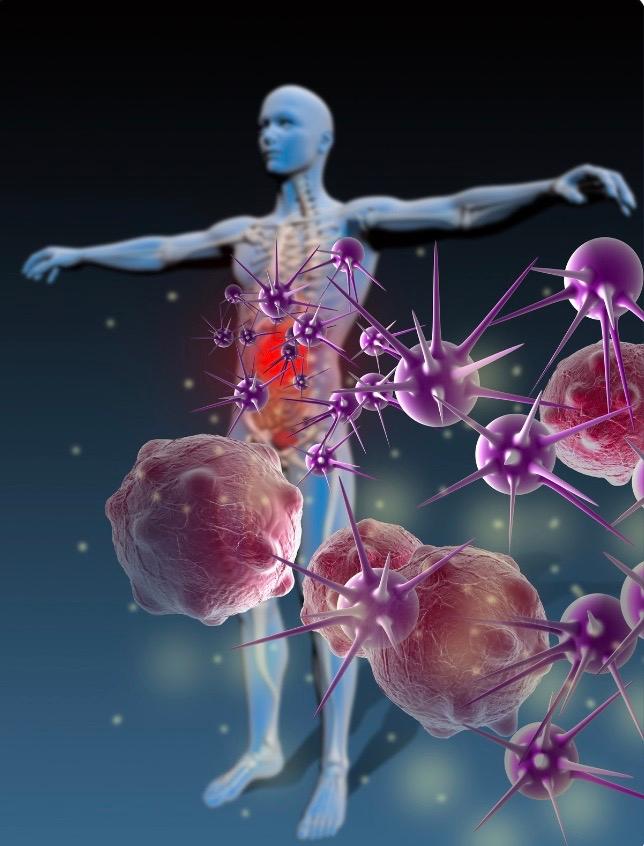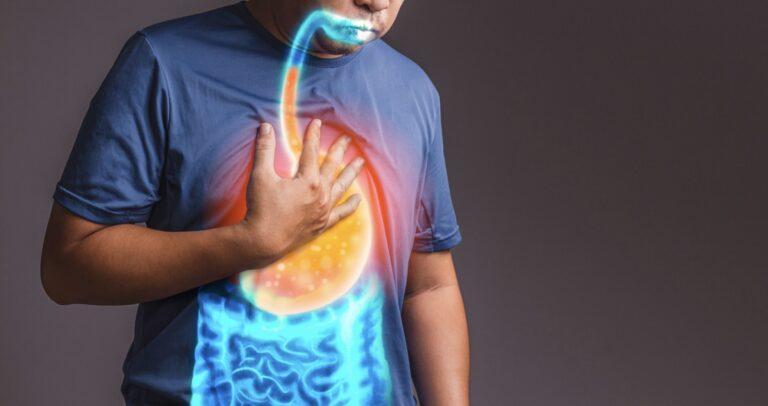There are a number of diseases that are common. While some of these diseases may be mild and not cause too much discomfort, others can be more serious. It is important to be aware of the symptoms of these diseases and to seek treatment if necessary. Many common health conditions can be prevented, diagnosed, and managed through routine screening and lab testing. The more you know about your health, the easier it is to be in control of it. In this blog post, we will highlight some of the most common diseases.
1. Heart disease
Heart disease is a general term for various conditions affecting the heart. The most common type of heart disease is coronary artery disease (CAD). It is the most common cause of heart attack and it was the single biggest killer of both men and women worldwide in 2019 according to the British Heart Foundation.
CAD occurs when the arteries that supply blood to the heart become blocked or narrowed. This can happen due to a build-up of plaque (a fatty substance) on the artery walls. Untreated CAD can lead to chest pain, heart failure, and arrhythmias. Heart disease is more common in people with obesity, and it is also linked to poor diet, lack of physical activity, high cholesterol and high blood pressure (hypertension). However, there are things that you can do to reduce your risk of developing heart disease, such as eating a healthy diet and taking regular exercise.
2. Urinary tract infections
A urinary tract infection (UTI) is a bacterial infection that can occur in any part of the urinary system, including the kidneys, ureters, bladder, or urethra. Most UTIs are caused by bacteria that enter the urinary system through the urethra and travel to the bladder. The bacteria then multiply and cause an infection.
UTIs are more common in women than men because their urethras are shorter and closer to the anus, which allows bacteria to enter the urinary system more easily. Symptoms of a UTI may include: a strong urge to urinate, pain or burning during urination, cloudy or bloody urine and pelvic pain.
UTIs can usually be treated with antibiotics. However, some UTIs may resolve on their own without treatment. In most cases, symptoms will improve within a few days of starting treatment. However, some people may experience recurrent UTIs.
3. Alzheimer’s Disease
In April 2022, the monthly death statistics for England released by the Office for National Statistics reported dementia and Alzheimer’s Disease as England’s biggest killers. A report commissioned in 2019 by Alzheimer’s Society found that by 2040 the number of people with dementia will reach 1.6 million.
Alzheimer’s disease is a type of dementia that affects a person’s memory, thinking, and behaviour. The disease usually progresses slowly and gets worse over time. Early symptoms of Alzheimer’s disease may include having difficulty remembering recent events or conversations, losing interest in hobbies or activities, and experiencing changes in mood or personality. As the disease progresses, people with Alzheimer’s may have trouble recognizing familiar people or places, difficulty speaking or writing, and problems with basic daily activities such as eating or dressing. Alzheimer’s disease is the most common cause of dementia, and there is currently no cure. However, treatments are available that can help to manage the symptoms of the disease and slow its progression.
4. Sexually transmitted diseases
Sexually transmitted diseases (STDs) are a group of infectious diseases that are passed from one person to another through sexual contact. STDs are quite common, and chlamydia is the most common STD in the UK. Other STDs include gonorrhoea and syphilis, but there are many others. STDs are caused by a variety of different microorganisms, including viruses, bacteria, and parasites. Some STDs, such as HIV/AIDS and hepatitis B can be deadly if left untreated. However, many STDs can be cured with antibiotics or other medications. In some cases, such as with HPV or herpes, there is no cure but treatments can help to manage symptoms. Practising safe sex is the best way to prevent STDs. This includes using condoms or other barriers during vaginal, anal, and oral sex.
5. Sore throat
A sore throat is a common condition that can be caused by a variety of things, from viral infections to allergies. The throat is the tube that carries food and air to the stomach and lungs, and it is lined with mucous membranes. These membranes can become irritated and inflamed, causing a feeling of pain or discomfort. Sore throats are often accompanied by other symptoms, such as a runny nose, coughing, or sneezing. In some cases, a sore throat may be a sign of a more serious condition, such as tonsillitis or strep throat. Sore throats are relatively common, and most people will experience one at some point in their lives. While they are usually not serious, sore throats can be quite painful and disruptive. There are many home remedies that can help to ease the discomfort of a sore throat, such as drinking warm liquids or gargling with salt water. If the sore throat persists for more than a few days or is accompanied by fever or difficulty swallowing, it is important to see a doctor to rule out any serious conditions.
6. Common cold
The respiratory disease known as the common cold is caused by a rhinovirus. The name comes from Greek, with ‘rhino’ meaning nose. These viruses are airborne and transmitted from person to person by respiratory droplets, for example, when an infected individual sneezes or coughs. Once inhaled, the virus replicates in the epithelial cells of the upper respiratory tract.
Symptoms include ear infection, body aches, muscle aches, runny nose, sneezing, sinusitis and sore throat. They generally last for around a week and whilst most people recover without any complications, for some, such as the elderly or immunocompromised, they can lead to more serious respiratory problems such as pneumonia. There is no specific cure for the common cold and currently, no vaccine exists to prevent its spread. Treatment focuses on relieving symptoms until the virus has run its course.
7. Bronchitis
Bronchitis is an inflammation of the bronchial tubes, which are the air passages that lead to the lungs. Bronchitis can be acute or chronic. Acute bronchitis comes on suddenly and usually clears up in a few days or weeks, while chronic bronchitis is a long-term condition. Chronic bronchitis is also known as Chronic Obstructive Pulmonary Disease (COPD).
COPD is a condition that makes it difficult to breathe. The main symptom of COPD is shortness of breath, which can worsen over time and make everyday activities very difficult. COPD is caused by a combination of factors, including smoking, exposure to irritants like chemicals, genetics, and lung infections. Asthma and Lung UK estimate that COPD affects more than 1.2 million people in the UK.
Treatment for COPD typically includes avoiding exposure to irritants, quitting smoking, and taking medication to help ease symptoms. In severe cases, surgery may be necessary to remove damaged tissue from the lungs. With proper treatment, many people with COPD are able to live long and fulfilling lives.
8. Mental Health conditions
According to the mental health charity Mind, 1 in 4 people will experience a mental health problem of some kind each year in England. Mental health conditions are disorders that affect a person’s mood, thinking, and behaviour. They can range from mild to severe and can be temporary or lifelong. Some common mental health conditions include anxiety, depression, bipolar disorder, and schizophrenia.
Mental health conditions are often caused by a combination of genetic, psychological, and environmental factors. Treatment typically involves medication, therapy, or a combination of the two. Mental health conditions can be difficult to manage, but with treatment, many people are able to live healthy and productive lives.
9. Type 2 diabetes
According to Diabetes UK, new figures show that there are 3.8 million people living with a diagnosis of diabetes in the UK, and 90% of those have type 2 diabetes. Diabetes is a chronic condition that affects the body’s ability to regulate blood sugar levels. There are two main types of diabetes: type 1 and type 2 diabetes.
Type 1 diabetes, also known as juvenile diabetes, is an autoimmune disease that occurs when the body’s immune system attacks and destroys the insulin-producing cells in the pancreas. Type 2 diabetes, on the other hand, is a condition that develops when the body becomes resistant to insulin or when the pancreas doesn’t produce enough insulin.
People with diabetes often have to take medication to control their blood sugar levels. In some cases, they may also need to inject insulin. Diabetes can lead to serious complications, such as heart disease, stroke, kidney failure, and blindness. With proper treatment, however, many people with diabetes are able to live long and healthy lives.
10. Gastroenteritis
Gastroenteritis, also known as stomach flu is an inflammation of the gastrointestinal tract that is usually caused by a bacterial or viral infection. E. coli is a common cause of gastroenteritis, and the condition can also be caused by rotavirus, norovirus, and other foodborne illnesses. Gastroenteritis is typically characterised by symptoms such as diarrhoea, vomiting, and abdominal pain and is particularly common in young children. In most cases, the condition resolves itself within a few days and does not require medical treatment. However, some people may experience more severe symptoms that require hospitalisation due to severe dehydration. Gastroenteritis is relatively common, affecting millions of people each year. It can occur anywhere there is contaminated food or water.
In our everyday lives, we encounter different illnesses and diseases. Some of these are common, while others are rare. It’s important to be aware of the most common diseases so that you can be proactive in your health and take the necessary steps to prevent them from affecting you. Always speak to your healthcare provider if you have any concerns.
Sources
- Coronary Heart Disease – NHS
- Urinary Tract Infections UTIS – NHS
- Alzheimer’s Disease – NHS
- Sore Throat – NHS
- Common Cold – NHS
- Bronchitis – NHS
- Mental Health – NHS
- Type 2 diabetes – Diabetes
- COPD – BLF
- Number of people with diabetes reaches 4.7 million – Diabetes
- Facts and figures – BHFHow many people have dementia in the UK? – Alzheimers
- Information about common STIs – NHS
Medical Disclaimer
NowPatient has taken all reasonable steps to ensure that all material is factually accurate, complete, and current. However, the knowledge and experience of a qualified healthcare professional should always be sought after instead of using the information on this page. Before taking any drug, you should always speak to your doctor or another qualified healthcare provider.
The information provided here about medications is subject to change and is not meant to include all uses, precautions, warnings, directions, drug interactions, allergic reactions, or negative effects. The absence of warnings or other information for a particular medication does not imply that the medication or medication combination is appropriate for all patients or for all possible purposes.







